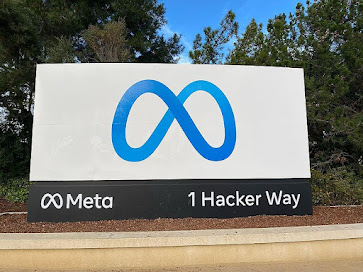The Challenges of Catching up in AI Development for Meta
Meta, formerly known as Facebook, is one of the world's largest technology companies. However, despite its massive resources and talent pool, it has fallen behind in the race to develop advanced artificial intelligence (AI) capabilities. In recent years, competitors such as Google and Microsoft have made significant strides in AI research and development, leaving Meta playing catch up.
Meta's AI Struggle
Meta's struggles with AI are well-documented. In 2019, the company shuttered its AI-powered personal assistant, M, after it failed to gain traction with users. More recently, the company has faced criticism over its handling of AI-generated content, such as deepfakes and misinformation.
In response, Meta has made AI a top priority, with CEO Mark Zuckerberg announcing in 2020 that the company plans to invest $10 billion in AI research over the next decade. This investment is expected to focus on developing AI systems that can better understand and process natural language, as well as improving the company's algorithms for content moderation.
Despite these efforts, however, Meta still has a long way to go before it can catch up with its rivals in AI. Google, for example, has been investing heavily in AI for over a decade and has developed some of the most advanced AI systems in the world, such as Google Translate and Google Assistant.
Challenges and Opportunities
One of the main challenges facing Meta in its pursuit of AI is talent acquisition. As AI has become an increasingly popular field of study, top AI researchers and engineers have become highly sought after, with many choosing to work for companies like Google and Microsoft over Meta.
Another challenge is the company's focus on social media and advertising, which may not be as conducive to AI development as other fields. AI research and development requires significant amounts of data, computing power, and experimentation, which may not be available within Meta's existing infrastructure.
Despite these challenges, there are also opportunities for Meta to excel in AI. For example, the company's vast trove of user data could be leveraged to develop highly personalized and targeted AI-powered services, such as recommendation engines and personalized news feeds. Additionally, Meta's acquisition of Oculus VR in 2014 gives the company a foothold in the fast-growing field of virtual and augmented reality, which could be a key area for AI development in the future.
Conclusion
AI is an essential component of the tech industry, and its importance is only going to increase in the coming years. While Meta may have fallen behind its competitors in AI development, the company's massive resources and commitment to investment in the field could help it catch up over time. However, the road to AI excellence is a long one, and Meta will need to overcome significant challenges and capitalize on opportunities to achieve its goals.

Comments
Post a Comment